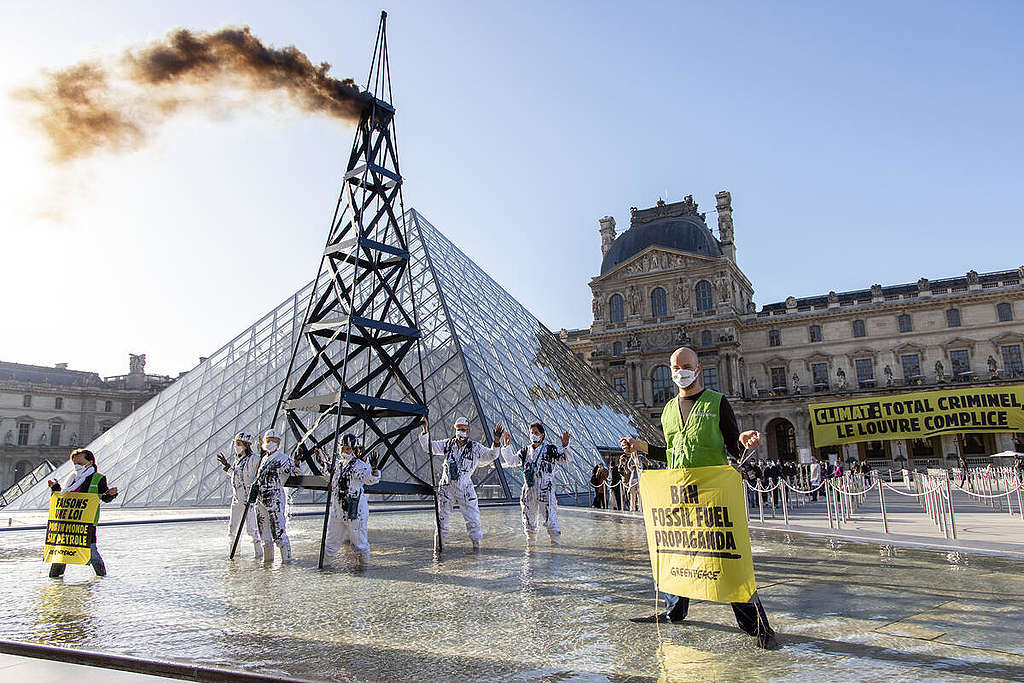Essential Principles for Investigations and Communications
Greenpeace International (GPI) is committed to gathering and publishing information in a responsible manner. Our ways of working are defined in our Essential Principles on Investigations and Communications (EPIC).

EPIC consists of four principles. Each principle comes with a number of protocols. The principles state our values, and the protocols outline the steps needed to uphold the principles.
We have decided to make these principles and protocols public, as a means of transparency and accountability. You can consult EPIC below. If you believe that any GPI investigation or communication did not live up to EPIC, please use the complaints form below. Complaints will be treated seriously and transparently, unless we consider the complaint to be in bad faith or repetitive.
Greenpeace is a public watchdog and committed to speaking truth to power through the publication of verifiable, accurate, truthful and independent information in the public interest.
Protocol 1.1 We verify information before making it public. If a level of uncertainty remains, this is reflected in our statements. Information from credible external sources may be published without verification, but when we do so, we indicate the source.
Protocol 1.2 We are transparent about the sources from which information we publish was obtained. We will however protect the identity of an information source if necessary to meet our duty of care, including if exposure would risk harm to the source or another person.
Protocol 1.3 In our communications, we distinguish between facts and opinions. Stronger opinions are supported by stronger facts.
Protocol 1.4 Before publishing significant allegations of wrongdoing, we provide the person or entity concerned a fair opportunity to comment, unless there are good grounds not to. Comments received are given proper consideration.
Protocol 1.5 We strive to convey all the facts that are essential for a correct understanding of the issues we communicate on.
Protocol 1.6 We do not pay journalists or news media for editorial coverage of our work, to avoid eroding their independence and credibility.
Protocol 1.7 Our investigations and communications will be faithful to our commitment to a strict understanding of non-violence.
Protocol 1.8 We do not endorse any political party or politician for elections. Nor do we lend our name or logo to any commercial product, service, technology or label. We do not position ourselves for or against countries.
Protocol 1.9 We will not change the meaning, message or reality of an event by doctoring photos or videos. We may edit images by cropping, highlighting or some colour modification, in line with accepted practice within the news industry.
Greenpeace gathers information in a responsible manner.
Protocol 2.1 We strive to conduct high quality independent investigations and to obtain information by honest, straightforward and open means, while ensuring the safety and wellbeing of people involved in all investigation stages.
Protocol 2.2 Our activities will not intrude on persons’ private lives without consent, except to the degree reasonably necessary to obtain or disseminate information of clear public interest.
Protocol 2.3 We will seek to collaborate with others on our investigations, nonetheless giving careful consideration prior to accepting or providing funds or entering into collaborations.
Greenpeace embraces, in a professional and thoughtful manner, both the personal and organisational risks involved in our investigations and communications work.
Protocol 3.1 We take calculated and smart risks as part of clear campaign strategies.
Protocol 3.2 We are committed to a duty of care for those taking risks.
Protocol 3.3 We recognise the primacy of individual rights while encouraging collective legal action.
Protocol 3.4 We take responsibility for our actions.
Greenpeace embraces accountability for its investigations and communications.
Protocol 4.1 If it comes to our attention that information we have published contains a significant mistake, we will promptly and transparently correct it.
Protocol 4.2 We strive to identify which Greenpeace entity is responsible for every communication and for every Greenpeace activity described therein.
Protocol 4.3 We accept complaints related to the form and content of our investigations and communications and we will treat them seriously and transparently.
Any person who believes a Greenpeace International (GPI) investigation or communication did not live up to these Principles and Protocols may submit a complaint using the form below, indicating the relevant facts and reasons. Please include a clear reference, including a URL if possible, to the matter you are complaining about.
Also, before submitting, please verify that your complaint indeed relates to GPI; this mechanism does not cover complaints about investigations or communications emanating from a Greenpeace National or Regional Organisation (NRO). The NROs are independent and their investigations and communications are not under the control of GPI.
A confirmation of receipt of the complaint will be sent in 7-10 business days, along with a notification of whether and how the complaint will be processed. Bad faith or repetitive complaints will be disregarded.
